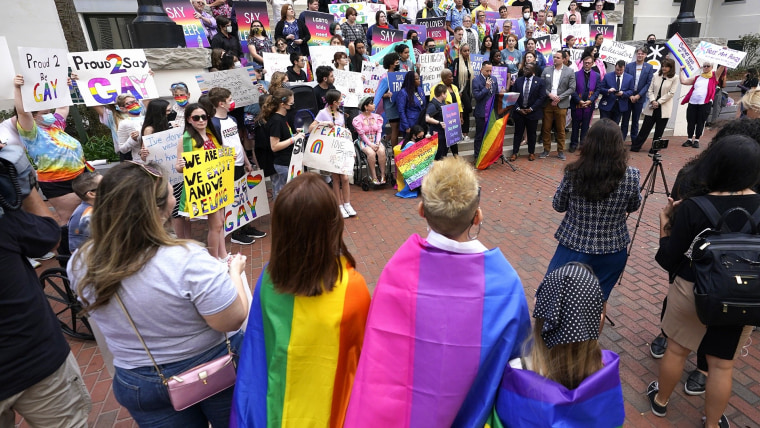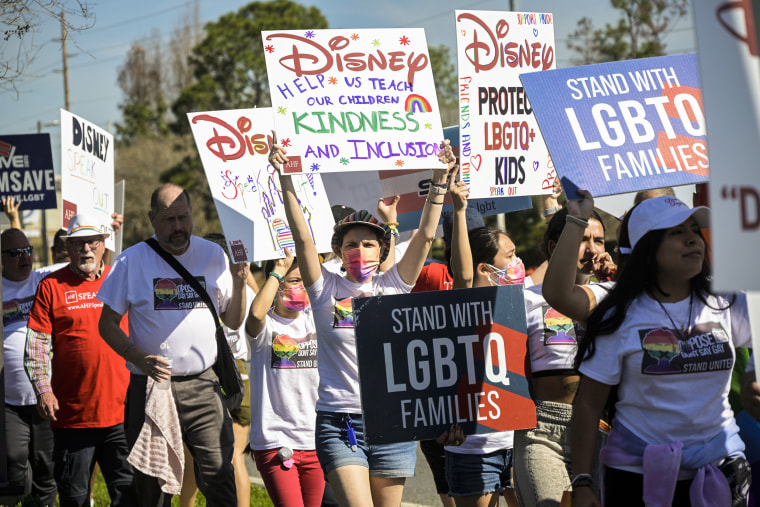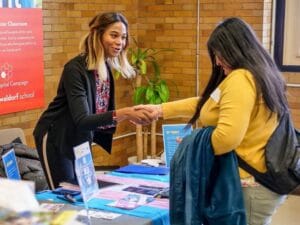Trans-focused sexual health clinics are quietly revolutionising care for the community
For years, Mandy (not her real name), a trans sex worker, used to commute two hours from Bristol to London just to access non-judgemental sexual healthcare.
“When I went to Bristol’s central clinic for a sexual health check-up, they told me they ‘don’t know how to deal with people like me,’” she tells PinkNews. “I even experienced having a student nurse brought in to look at my post-operative vagina.” This humiliating experience made her determined to find more inclusive services, but doing so was far from easy.
In Mandy’s eyes, “finding clinicians that are able to handle my trans body and my sex work was an uphill struggle”.
“I basically had to travel 100 miles just to get tested in an environment and a situation that didn’t traumatise me,” she says.
At first, she sought out sex worker-friendly clinics, like the Spittal Street Women’s Clinic in Edinburgh. These were a marked improvement, she says, but nothing compared to the care she received at CliniQ, a trans-led sexual health and wellbeing service based in London.
Services like these are still all too rare, but the last few years have seen a tiny handful of other openly trans-inclusive sexual health services crop up across the UK, many of them trans-led.
What options are available?
According to GenderKit, an online trans resource, there are currently five trans-specific sexual health services in the UK: 56T at 56 Dean Street and CliniQ, both based in London, the Butterfly Clinic at the Royal Liverpool Hospital, Clinic Trans in Birmingham (which, according to its website, is not currently running), and Clinic T in Brighton.
A handful of these services only have limited hours, but they still represent a vital step forward in the fight for accessible trans sexual healthcare. More importantly, they demonstrate a clear demand for such services.
The Butterfly Clinic first opened its doors back in 2018. After briefly closing throughout the pandemic, the Liverpool-based service is now open every Monday and Tuesday. “We offer a wide range of services,” a representative explains, “including vaccinations for Hepatitis A, B and HPV where appropriate. We can also initiate and manage [HIV prevention medication] PEP and PrEP.”

Clinic lead Hayley cites an appointment with a trans sex worker as a landmark moment in her decision to spearhead the Butterfly Clinic. “The patient was using sex work to fund their transition, and they spoke about the barriers they had faced,” Hayley recalls. “I asked them why they had decided to come for a sexual health screening after so many years of avoiding appointments, to which they replied: “I’ve always looked after myself from a safety and security point of view, but I had neglected my health.”
It was an epiphany of sorts for Hayley, who hadn’t previously recognised the dire need for a trans-specific service.
The Butterfly Clinic is provided by axxess sexual health, who were immediately supportive of the idea. “After being given the go-ahead, I first reached out at Liverpool Pride, which got a great response,” continues Hayley. Since then, she’s worked with local support groups and other trans-led organisations to ensure a gold standard of trans-specific care.
For trans people long accustomed to feeling let down by professionals, the feeling of being treated fairly and taken seriously can be hugely affirming.
The first time 25-year-old Harry went to 56T in London, he found himself amazed that practitioners actually knew how to help him. “My questions were mainly around whether or not the pill (which I thought must have some kind of hormone in it) would interact with my testosterone, what contraceptives would be available to me other than condoms and what would be my risks of HIV exposure as a a gay trans man,” he tells PinkNews.
Previously, Harry had broached some of these concerns with other sexual health clinicians, but he was told he would have to seek out a “specialist” – a gender clinic practitioner in other words.
But of course, gender clinics have endless waiting lists, and their practitioners aren’t specifically trained to answer sexual health questions. As a result, Harry found himself at a loss for answers.

This wasn’t the case at 56T. “I don’t have periods, so the clinic was able to offer me a pregnancy test if I was worried I might be pregnant,” he explains. “They really knew their stuff and made me feel at ease. I was told – through their trans-inclusive practice and approach – that my body wasn’t odd, unusual or strange. For the first time, professionals had answers to my questions. That felt really important.”
Perhaps unsurprisingly, given the context of these backstories, plenty of trans people have long been reluctant to seek care.
According to 2019 research published in the British Medical Journal, “trans people were less likely to have attended a sexual health clinic in the past 12 months compared to cisgender people,” and those who did were “more likely to report experiencing discrimination in a medical setting [than cisgender people]”.
This discrimination often isn’t mild, either. The statistics show that “over four-fifths of trans participants had high or very high levels of psychological distress”.
At trans-led clinics, we’re treated with the care and attention we deserve.
Harry has found himself feeling anxious about the potential quality of care he’ll receive. “I’ve had sexual health professionals say ‘I’ve seen it all, nothing can surprise me, love!’” he says. “In my experience though, that’s not the case.”
In the past, Harry has had multiple clinicians say he’s the first trans person they’ve come into contact with. He recalls: “One time, the sexual health practitioner got confused and said that her manager would have to do the consultation instead.”
Chris Higgins, a fellow clinic lead at The Butterfly Clinic, has heard plenty of these horror stories. “The first we need to address is the high likelihood that the trans patients coming to us have previously had negative experiences. Without giving anecdotes, let’s just say these patients definitely need to have their trust earned.”
Sensitivity is key. “Being able to take a sexual history from a trans patient without them feeling the exercise is voyeuristic is important,” continued Higgins. “We ask questions that are necessary for best care, not out of a sense of personal interest or curiosity.”
Crucially, these environments also don’t treat trans people as “other,” which is rarely the case elsewhere. In fact, when it comes to mainstream healthcare providers helping trans people, it’s often too much about luck. There are online resources like trans subreddits and advocacy groups like Action for Trans Health to point people in the right direction, but largely, access to good trans healthcare relies on word-of-mouth recommendations from other trans people in the know.
Trans-led clinics are looking to remedy these issues. CliniQ in particular is known for taking a holistic approach; although it’s not a gender clinic, practitioners can give advice on hormones, mental illness and point people in the direction of peer mentoring schemes. The website also contains a valuable list of external resources, which feature advice on everything from homelessness to support for LGBT+ survivors of domestic violence.
In these trans-led sexual health clinics, there’s an understanding that trans bodies often work differently to cis bodies. “For us, our genitals are sometimes a source of trauma or difficulty,” continues Mandy, “and our bodies after surgical intervention don’t always operate the same as, or look the same as, their cis counterparts.”
These differences aren’t sensationalised in trans-led clinics, nor do they lead to intrusive, potentially triggering lines of questioning. “In these spaces, you’re able to say, as a man with muscles and a beard, ‘I’ve had some discoloured, unusual discharge from my vagina’ and nobody bats an eyelid,” says Harry. “We’re treated with the care and attention we deserve.”

Funding these services is no easy feat, though. It’s no secret that grassroots organisations have long been forced to plug holes in government provision; as a result, a handful of these clinics can only operate during strict opening hours due to funding restrictions, or they’re partially reliant on donations.
According to Mandy, a potential solution is to acknowledge the overlap between trans and sex worker populations, and to work to more closely integrate their services. “The two communities are intrinsically linked, and our lives often intersect in difficult ways,” she explains. “Sometimes it’s impossible to access a trans-specific clinic in places where there’s a sex worker clinic, and vice versa. Therefore, it’s vital that these services are able to cater to our needs.”
The rise of at-home testing
At-home testing has made a huge difference, too. Last year, a UK study found that HIV testing rates had trebled amongst trans communities due to the increased accessibility of at-home tests. “That doesn’t surprise me in the slightest,” says Harry, who believes “most people – not just trans people, or people who are anxious about their bodies – will find it easier to do tests in the comfort of their own home.”
However, there’s more to good sexual healthcare than just testing –– from PrEP and birth control to informed practitioners able to answer questions about hormones, treatment and much more, there’s still a huge need for more trans-specific clinics.
Then, there’s the fact that smear tests aren’t targeted towards trans men and non-binary people, although both populations can be at high risk of cervical cancer.
These healthcare issues are often reduced to hot-button, clickbait “debates” about inclusive language by right-wing commentators, but there are actual lives at stake when it comes to conversations around healthcare access.
At-home testing and trans-led clinics may be plugging vital gaps in UK healthcare, but there’s more funding, more education and more awareness needed to ensure more trans people can access them.
“I definitely welcome at-home testing,” concludes Harry, “but it can’t be treated as a replacement for good care and trans-inclusive training.”





